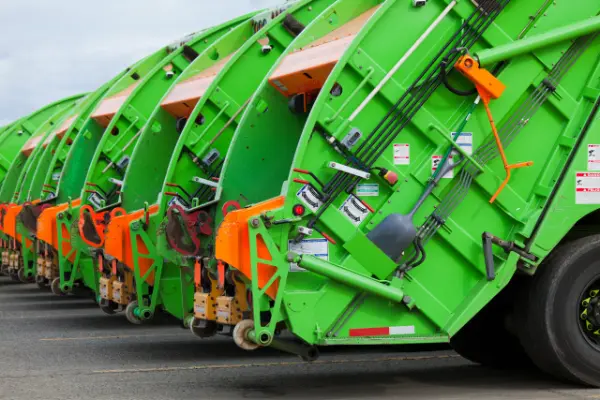Introduction
Waste management services play a crucial role in maintaining environmental sustainability by efficiently managing and disposing of waste materials. In recent years, waste management services have been innovating to embrace more sustainable practices and reduce the impact of waste on the environment. In this article, we will explore five ways waste management services are innovating for a sustainable future.
1. Implementation of Advanced Waste Sorting Technologies
One of the key innovations in waste management services is the implementation of advanced waste sorting technologies. Traditional waste sorting methods are often labor-intensive and inefficient, leading to higher levels of contamination and lower recycling rates. However, with the adoption of advanced technologies such as automated sorting systems and optical sorting machines, waste management services are able to achieve higher levels of accuracy and efficiency in separating different types of waste materials. This not only enhances the recycling process but also reduces the amount of waste ending up in landfills, contributing to a more sustainable future.
2. Development of Sustainable Waste Disposal Methods
Another important innovation in waste management services is the development of sustainable waste disposal methods. Conventional waste disposal methods such as landfilling and incineration can have significant negative impacts on the environment, including air and soil pollution. However, waste management services are increasingly turning to sustainable waste disposal methods such as composting and anaerobic digestion. These methods not only minimize environmental impact but also produce valuable by-products such as compost and biogas, contributing to a circular economy and reducing reliance on finite resources.
3. Introduction of Smart Waste Management Systems
With the advancement of technology, waste management services are introducing smart waste management systems to optimize waste collection and disposal processes. These systems utilize sensors and data analytics to monitor waste levels in bins, optimize collection routes, and identify opportunities for waste reduction. By leveraging real-time data, waste management services can minimize fuel consumption, reduce greenhouse gas emissions, and improve overall operational efficiency. This not only benefits the environment but also contributes to cost savings for both waste management companies and their clients.
4. Embracing the Circular Economy Model
Another significant innovation in waste management services is the embrace of the circular economy model. Instead of following a linear approach of take-make-dispose, waste management services are transitioning towards a circular economy where resources are kept in use for as long as possible, with the aim of minimizing waste and maximizing resource efficiency. This involves promoting practices such as waste prevention, repair, reuse, and recycling, as well as fostering partnerships with businesses to implement sustainable supply chain practices. By adopting a circular economy mindset, waste management services are contributing to a more sustainable and regenerative economic system.
5. Integration of Sustainable Packaging Solutions
As the amount of packaging waste continues to rise, waste management services are innovating by integrating sustainable packaging solutions into their operations. This includes collaborating with businesses to adopt eco-friendly packaging materials, implementing packaging design that prioritizes recyclability and reusability, and promoting consumer awareness on responsible packaging disposal. By addressing the issue of packaging waste at its source, waste management services are playing a proactive role in reducing the environmental impact of packaging materials and promoting a more sustainable approach to product packaging and distribution.
Conclusion
In conclusion, waste management services are continuously innovating to embrace more sustainable practices and contribute to a sustainable future. Through the implementation of advanced waste sorting technologies, development of sustainable waste disposal methods, introduction of smart waste management systems, embrace of the circular economy model, and integration of sustainable packaging solutions, waste management services are making significant strides towards reducing their environmental impact and promoting sustainable waste management practices. As a leading provider of cleaning services and waste management, Crystal Facilities Management is committed to driving innovation in waste management services and contributing to a more sustainable future.














